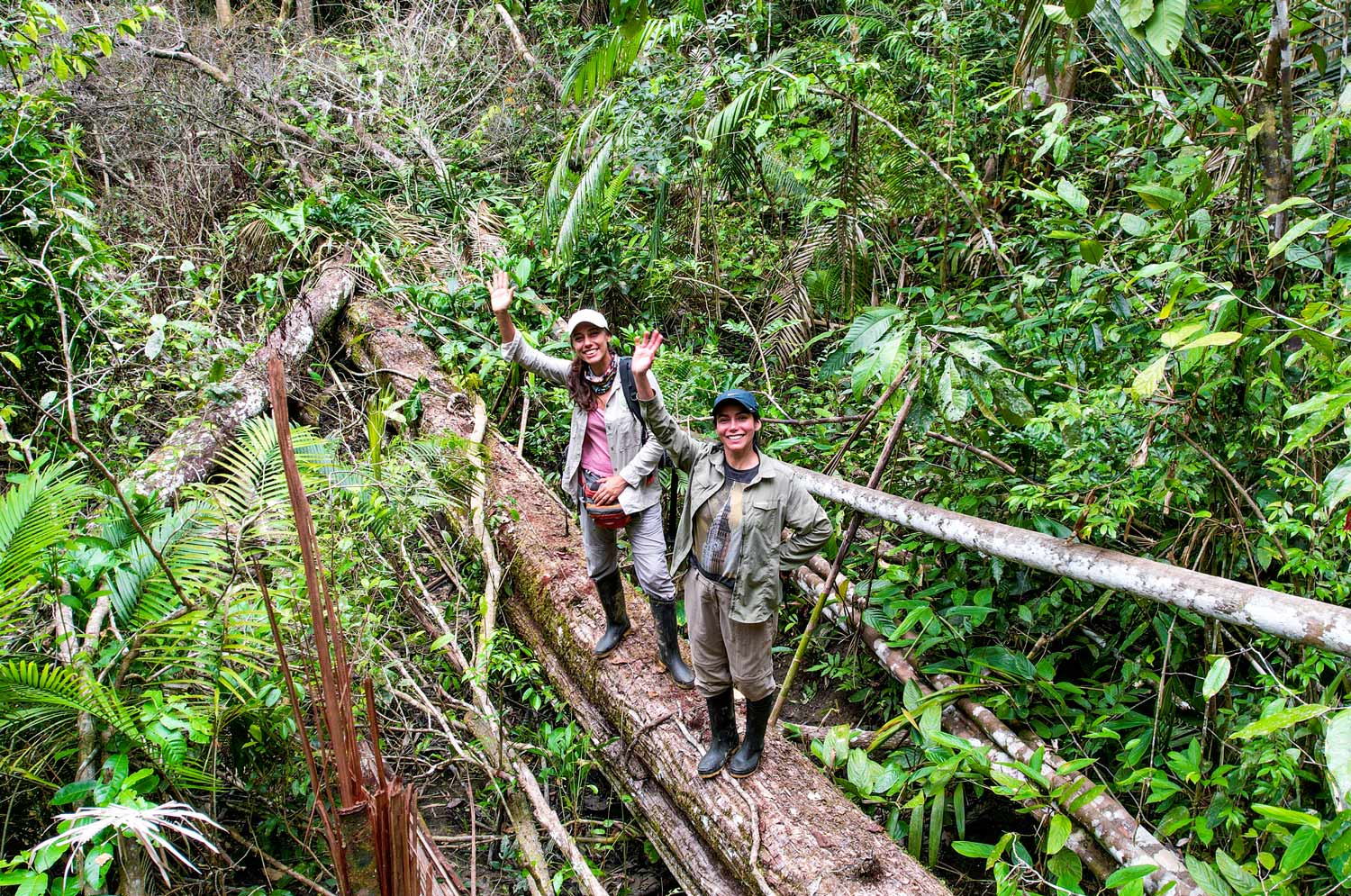This pilot project develops low-cost and user-friendly methods to timely detect forest disturbances, including illegal deforestation and forest degradation activities.
In order to achieve forest conservation, the first step is to know how much forest there actually exists and how much of it has been lost. Only with this information, a forest can be protected and managed in a sustainable way. This project will contribute to increasing the sources of valid and scientifically-based information on regional and local deforestation. It will do this by empowering managers of local forest conservation units through training and capacity building.
This project contributes to the ongoing forest conservation endeavors in Peru by developing a near-real-time (NRT), low-cost, and user-friendly forest monitoring system to detect deforestation and forest degradation processes at local scales in the Amazon rainforest. Forest managers will learn to use freely available, high-resolution satellite images and open-source software to detect changes in tree cover and infer whether this change is due to natural processes or deforestation caused by human activities.

ARBIO and BluoVerda teams. ©GIZ/Piero Hilari
This project is conducted in partnership with Bluoverda
BluoVerda Deutschland e.V. is an organization located in Dresden, Germany that promotes the maintenance, enhancement and recovery of ecosystems and natural resources in Latin America. It works with consideration and in support of sustainable livelihoods of local people.

Tatiana Espinosa (ARBIO) y Mariana Vidal (BluoVerda). ©GIZ/Piero Hilari
The founders of ARBIO and BluoVerda have known each other for more than 15 years. Tatiana and Mariana studied forestry sciences at the UNALM university in Lima (Peru) and have since then been engaged in the sustainable management and conservation of forest ecosystems. Through this project, ARBIO and BluoVerda join efforts to advance the technology for monitoring changes in forest cover using open-source software.